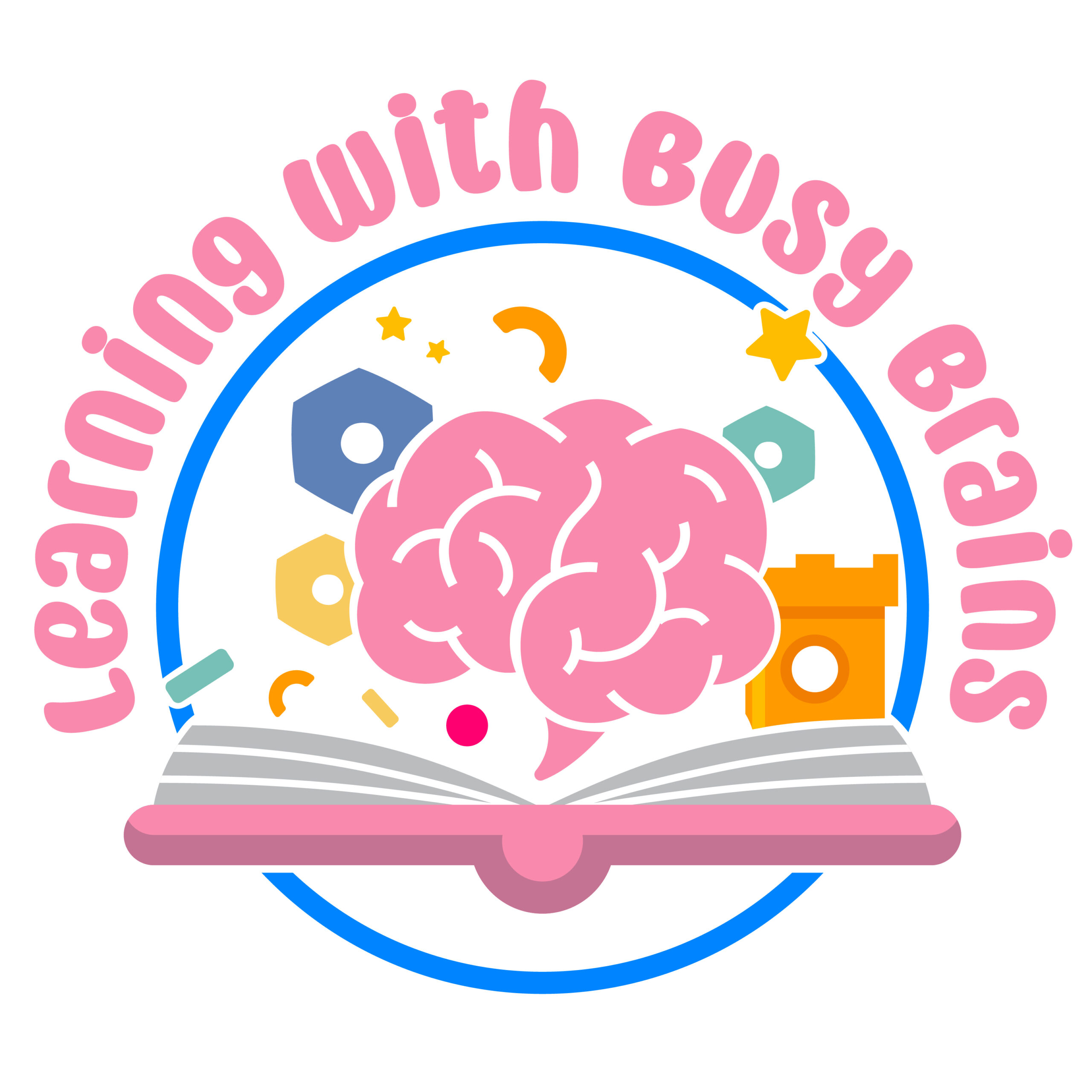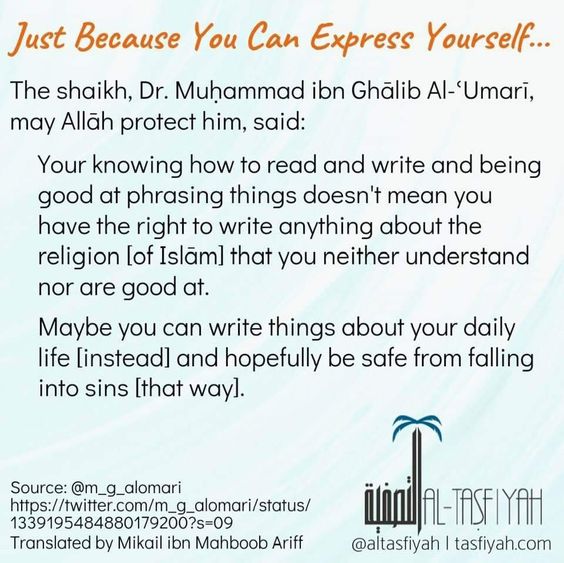In the name of Allah,
In today’s world, where information is at our fingertips and anyone can write or publish their thoughts with ease, it is crucial to recognize the responsibility that comes with sharing knowledge: especially when it comes to matters of religion. As homeschooling moms and bloggers, we often share insights from our daily lives, lessons we’ve learned, and advice on how to teach and nurture our children. But when it comes to religious topics, a gentle reminder to stay within our limits is sometimes needed.
I recently came across a profound statement by Shaikh Dr. Muḥammad ibn Ghālib Al-ʿUmarī, may Allāh protect him, which made me pause and reflect on my own writing:
“Your knowing how to read and write and being good at phrasing things doesn’t mean you have the right to write anything about the religion [of Islām] that you neither understand nor are good at.
Maybe you can write things about your daily life [instead] and hopefully be safe from falling into sins [that way].”
This reminder deeply resonated with me. It made me think about the importance of knowing our limits, especially when it comes to something as significant as our faith. While I strive to incorporate Islamic values into our homeschool, I’ve realized that when it comes to writing or speaking on religious topics, I need to approach it with utmost caution and respect.
Staying within the Boundaries of Knowledge
It’s easy to assume that just because we can articulate our thoughts well, we’re equipped to explain religious concepts. However, as the shaikh points out, understanding and being good at writing are not enough when it comes to matters of Islām. The religion is vast, deep, and requires careful study under qualified scholars. Without proper knowledge, there’s a risk of sharing incorrect information, which could mislead others and even lead us into sin unknowingly.
For me, this serves as a gentle reminder to stick to what I know and what I’m confident in sharing: my personal experiences, my homeschooling journey, and lessons learned along the way. I may not be an Islamic scholar, but I can still share meaningful content that benefits others without overstepping into areas that require deeper understanding.
Focusing on What We Know Best
When it comes to homeschooling, there’s so much we can share that doesn’t necessarily require expertise in religious knowledge. Sometimes we reflect on the Qur’anic ayah in our daily struggles, as we are Muslims first, with our Islam integrated throughout our lives. We are teaching our kids to perform salah, to make dua, to understand what is haram or halal, and many other things that don’t require expertise.
As a neurodivergent family, we focus on raising lifelong learners who are resourceful, resilient, and grounded in strong Islamic values. While we are not authorities on the religion itself, we love sharing how we integrate Islamic values and aqeedah into our day-to-day lessons through a strength-based and interest-driven approach. For subjects like Usool al-Thalatha, where there may not be an ustadh available to check their work or my work, there are practical approaches we can take. We can start by using accessible resources such as books and online lectures tailored to the topic. Engaging with family or friends who have some knowledge can provide valuable insights and discussions.
Additionally, creating a study plan can help structure our lessons. For example, we might dedicate certain days to focus on each of the three principles, discussing their meanings, significance, and how they apply in daily life. Encouraging our kids to summarize what they’ve learned and share it with the family can also reinforce their understanding. Using interactive methods, like creating flashcards or drawing mind maps, can make the learning process more engaging. We can even involve them in practical exercises, such as reflecting on personal experiences that relate to each principle, fostering a deeper connection to their learning.
Where I come from, we don’t have access to a Salafi community, masajid, or madrasahs, so we rely on practical methods that work for our family’s unique needs.
That goes without saying, we recognize the responsibility of setting up this blog for homeschooling. Of course, we can’t approach homeschooling in a secular manner; everything should be filtered through an Islamic lens, as part of our struggle in tarbiyyah.
Instead of venturing into complex religious topics, we can share experiences of Islam from our daily lives: what works for us, what doesn’t, and the lessons we’ve learned along the way. This kind of writing is not only safer, but it can also help us avoid falling into error while still providing value to our readers.
Writing with Humility
This reflection has reminded me of the importance of humility in writing. Knowing our limits and being mindful of what we share is a way of showing respect for the vastness of our faith. When it comes to religious matters, I’m reminded to always seek guidance from scholars, verify my sources, and most importantly, to acknowledge when something is beyond my knowledge.
There is a certain beauty in recognizing that we don’t have to know everything, and that we can leave religious guidance to those who have dedicated their lives to studying Islam.
Conclusion
As a homeschooling mom, my goal is to share the best of what I’ve learned with others. But it’s important to remember that writing about faith requires more than good phrasing: it requires deep understanding. For now, I will continue to focus on sharing the aspects of my life that I know well, while always striving to learn and grow in my knowledge of our beautiful religion.
Having a homeschooling blog is not about seeking recognition but serves as a record of our journey and efforts. In Malaysia, where homeschooling approval can be challenging, and only a few parents manage to secure it, this blog helps us document our progress and reflect on our experiences if anything goes wrong. We are committed to keeping a thorough record, both online and offline, while providing support to others. This approach ensures that we remain transparent and focused on offering genuine assistance, navigating the complexities of homeschooling with care and sincerity. Let us approach our writing with humility and care, always prioritizing truth and sincerity over everything else.
For more insights into obtaining homeschooling approval in Malaysia, feel free to check out my previous post where I shared an affiliate link to a book by a former teacher and her husband who successfully navigated the approval process. Unlike those who might not have had official approval, we believe in doing whatever it takes to keep thorough and official records, bi’ithnillah.


